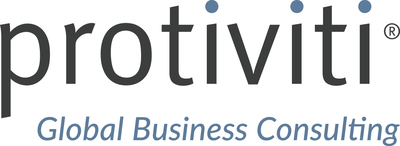AI Boosts Productivity by the Equivalent of One Workday Per Week, New Report Finds
Rhea-AI Summary
RHI research released Oct 28, 2025 finds employees using AI save an average of 7.5 hours per week—about $18,000 per employee per year in productivity value. The LSE Inclusion Initiative and Protiviti surveyed ~3,000 workers and 240 executives and report that AI training drives adoption: 93% of trained employees use AI versus 57% untrained, and trained staff save 11 hours/week versus 5 hours/week for the untrained. The study also says multigenerational AI teams report higher productivity (77% vs 66%). However, 68% of employees received no AI training in the past 12 months, leaving gains unrealized.
Positive
- Average productivity gain: 7.5 hours/week
- Estimated value: $18,000 per employee per year
- Trained employees save 11 hours/week vs 5 hours/week untrained
- 93% of trained employees use AI versus 57% without training
- Multigenerational AI teams: 77% report productive outcomes
Negative
- 68% of employees received no AI training in past 12 months
- Majority of potential efficiency gains remain unrealized
- AI adoption gap: untrained employees save only 5 hours/week
News Market Reaction
On the day this news was published, RHI declined 0.92%, reflecting a mild negative market reaction.
Data tracked by StockTitan Argus on the day of publication.
Yet 68 per cent of employees have received no AI training in the past 12 months, says new LSE–Protiviti research
The report, Bridging the Generational AI Gap: Unlocking Productivity for All Generations, which surveyed nearly 3,000 workers and 240 executives globally, reveals that professionals using AI save an average of 7.5 hours per week – worth around
However, despite this significant potential, most employees (
Dr Grace Lordan, Founding Director of The Inclusion Initiative at LSE, who led the research, said: "For business leaders, the priority is clear: closing the AI training gap is one of the fastest ways to unlock measurable returns. Equipping employees with the right skills doesn't just improve individual productivity — it drives sharper decision-making, accelerates innovation and creates stronger overall performance. In an environment where every efficiency counts, organisations that act now will set themselves apart from those still waiting on the sidelines."
AI skills training, not generation, determines AI success
Contrary to popular belief, AI adoption isn't limited to younger generations. The research makes clear that training—not generation—is the decisive factor:
-
93% of employees who receive AI training use AI in their roles, versus just57% without training. - Those with training are 2x more productive, saving 11 hours per week compared with 5 hours for the untrained.
- A Gen X employee who has received AI skills training in the past 12 months is achieving greater productivity benefits from AI than a Gen Z employee who has not been trained.
Inclusive AI teams outperform
The study also found that when it comes to delivering AI initiatives, generationally diverse teams are more productive:
Dr Daniel Jolles, Research Officer in Behavioural Science at The Inclusion Initiative at LSE, who co-led the research, said:
"Our findings show the importance of recent and relevant training in helping employees engage with AI productively. For older generations in particular, training is key to AI adoption, ensuring their deep business experience helps shape how these technologies are applied. Equipping employees of all generations to use AI effectively and creating diverse AI teams helps remove age-based divides between employees, fosters collaboration, and drives stronger team outcomes."
Fran Maxwell, Global Leader of People & Change, Protiviti, said:
"AI isn't just another tool for the workplace — it's a catalyst for rethinking how they organise, lead and empower their people. The organisations that will benefit the most are those that embed AI into everyday workflows, redesign roles to focus on higher-value work, and give employees the confidence to experiment. This research shows that inclusive adoption across all generations doesn't just improve productivity — it prepares companies for the next wave of change."
Matt Duncan, Managing Director at Protiviti, said:
"Protiviti's 2025 Executive Perspectives on Top Risks Survey revealed that AI and talent-related risks, including the availability of labour and skills to leverage emerging technologies, are among the top 10 challenges for executives. This research highlights that productivity gains can be made by investing in AI skills training across generations. Creating multigenerational AI teams is more likely to drive increased employee commitment, achieve organisational gains and mitigate these risks."
Protiviti and LSE are hosting a virtual launch event on 28 October that will explore the preliminary report findings. Please register here.
Notes to editors
The authors of the research are:
Dr Daniel Jolles, Research Officer in Behavioural Science, The Inclusion Initiative, LSE.
Dr Grace Lordan, Founder and Director of The Inclusion Initiative at LSE, Associate Professor in Behavioural Science, and author of Think Big, Take Small Steps and Build the Future you Want.
The Inclusion Initiative at LSE
The Inclusion Initiate (TII) at LSE was founded by Dr Grace Lordan to bring together a multi-disciplinary team to understand how to measure and improve inclusion and productivity within firms and at the team level.
About Protiviti
Protiviti (www.protiviti.com) is a global consulting firm that delivers deep expertise, objective insights, a tailored approach and unparalleled collaboration to help leaders confidently face the future. Protiviti and its independent and locally owned member firms provide clients with consulting and managed solutions in finance, technology, operations, data, digital, legal, HR, risk and internal audit through a network of more than 90 offices in over 25 countries.
Named to the Fortune 100 Best Companies to Work For® list for the 10th consecutive year, Protiviti has served more than 80 percent of Fortune 100 and nearly 80 percent of Fortune 500 companies. The firm also works with government agencies and smaller, growing companies, including those looking to go public. Protiviti is a wholly owned subsidiary of Robert Half (NYSE: RHI).
1 Projections based on salary numbers provided by each survey respondent
![]() View original content to download multimedia:https://www.prnewswire.com/news-releases/ai-boosts-productivity-by-the-equivalent-of-one-workday-per-week-new-report-finds-302595610.html
View original content to download multimedia:https://www.prnewswire.com/news-releases/ai-boosts-productivity-by-the-equivalent-of-one-workday-per-week-new-report-finds-302595610.html
SOURCE Protiviti








